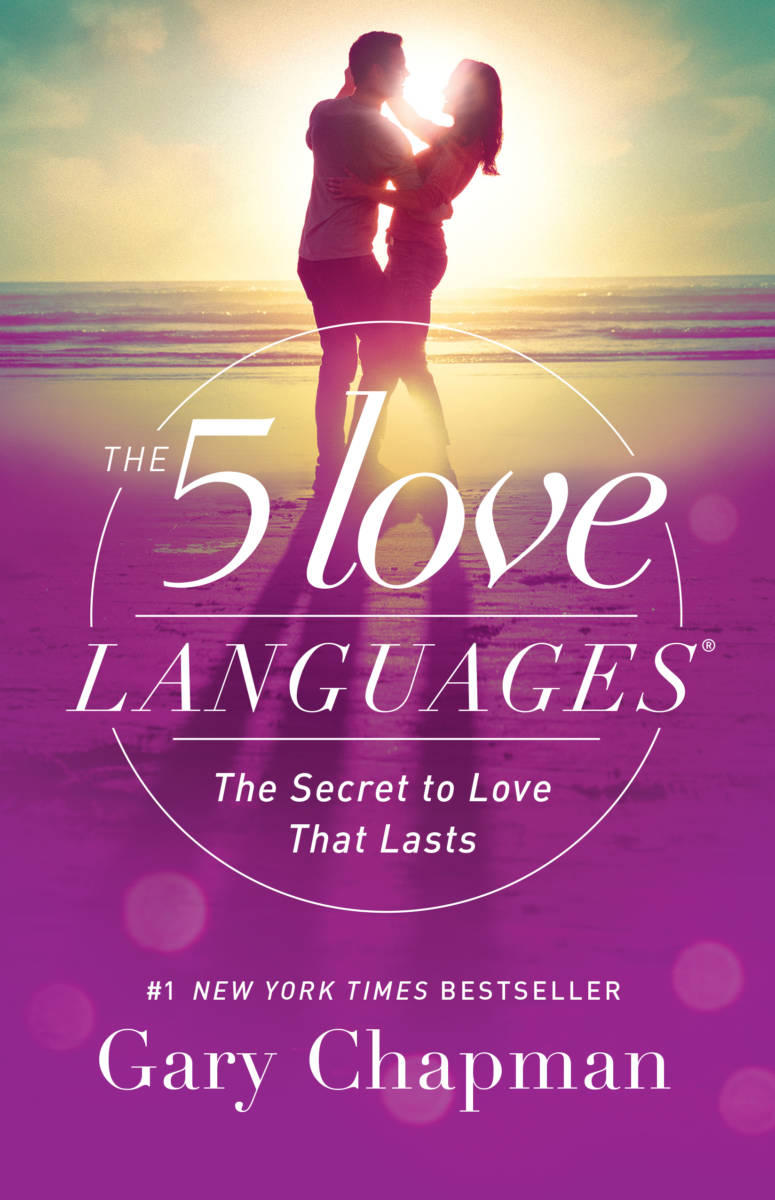Here it is again, Valentine’s Day, the most romantic day of the year! Husbands and wives or lovers exchange cards, flowers, gifts and sweet nothings in the ear, sparking anew their undying passion and affection.
Anyway, that’s generally the plan. And all these amorous niceties are a meaningful and luxurious treat, but as we all know, making love last and grow is a trickier proposition.
To get the real scoop on how to renew and stoke mutual love on Valentine’s Day and beyond, we talked to Dr. Gary Chapman, an internationally recognized marriage counselor and author of “The Five Love Languages: The Secret to Love that Lasts.” First published in 1992, the book has since snowballed into a publishing miracle, with more than 13 million copies sold in 50 languages.
The five love languages

Dr. Chapman developed his concept of the five love languages in the early 1990s. After reviewing the notes from his many years in marriage counseling, he realized that everything he knew about expressing and receiving love on an emotional level could best be framed in five categories, or “languages”: words of affirmation, acts of service, gifts, quality time, and physical touch.
For almost all of us, one of those five is more important than the other. The key to our feeling truly loved is getting that kind of love from our partner as often as possible.
Words of affirmation

“Words of affirmation can be as simple as ‘You look nice in that outfit’ or ‘I appreciate what you did,’” Chapman explains. “It can be something about their looks or personality or something else. It’s simply using words to affirm something about the other person. You can write them, speak them, even sing them.”
Acts of service
Then there are acts of service, or doing something for the other person that you know they would like you to do: Washing dishes, vacuuming floors, cooking a meal, walking the dog, mowing the grass. “You know the old saying, actions speak louder than words,” Chapman says. “It’s not true for everyone, but it is true for these people. If this is their love language, actions will speak louder than words.”
Gifts

As for gifts, they’re a universal expression of love, telling someone you’re thinking of them, but it rings the loudest bell for someone when it’s their primary love language.
“It doesn’t have to be an expensive gift, but it needs to be a thoughtful one,” Chapman explains. “It can be as simple as a candy bar — something you know they would enjoy. But it means you have to know them and what would make them feel loved.”
Quality time
Quality time, Chapman notes, means giving someone your undivided attention. “This can be a conversation sitting at home, taking a walk together, going out to eat,” he says. “It doesn’t even have to involve talking. It can be a project, say, doing a flower garden in the front yard together. The important thing is not the flower garden; it’s giving them full attention while you do it with them.”
Physical touch

Physical touch runs a wide gamut, from holding hands, putting an arm around a shoulder or touching their leg as they drive — simple affirming physical touches — to kissing, embracing, and sex.
“We can receive love in all five of these languages, and we’re not going to turn away from any of them,” Chapman says. “But one of them is going to mean much, much more emotionally to us than the others.”
Love dialects
Even if, on rare occasions, someone has the same love language as his or her partner, the partner may speak a different subset of that language. “A woman once said to me, ‘For both me and my husband Gary, acts of service mean the most, but my husband needs to receive different acts of service than I do to feel loved,’” Chapman recalls. “So, in effect, they spoke different ‘dialects’ of acts of service, and each had to learn the other’s dialect to make the partner feel the most loved.”
The question is, how do we improve our relationships by tapping into the love language our partner favors most? “Obviously, all of us have disagreements on many different subjects in the course of life,” Chapman acknowledges. “But if we meet the need for love, it’s far more likely for us to be willing to listen to the other person’s perspective and try to process the conflicts in a healthy manner. Our greatest emotional need as humans is to feel loved by the significant people in our life, and having that foundation of love makes everything else easier.”
Reaching the heart of Heart’s Day

Is the upshot, at least on Feb. 14, that we focus our Valentine’s Day attentions on whatever our lover’s love language is? If words of affirmation are her thing, do we stick with a card and protestations of our undying admiration? If physical touch is what gives him a charge, do we simply lay on hands? If gifts stir her heartstrings, do we bring home her cherished white roses and a box of her favorite chocolates?
For Chapman, on this special day, it’s all of the above.
“In our culture, we have our traditional ways of expressing love on Valentine’s day, especially flowers and words,” he says. “So, I wouldn’t be too dogmatic here. You’ll never hear me saying on Valentine’s Day, speak only the other person’s primary love language. No, no, no, no! I would say that even if gifts or words are not your partner’s love language, don’t simply assume that you don’t have to mess around with cards or flowers.

Almost every woman I know likes flowers, whether it’s her primary love language or not, unless she’s allergic.
DR. GARY CHAPMAN
Marriage counselor and author of “The 5 Love Languages”
“Almost every woman I know likes flowers, whether it’s her primary love language or not, unless she’s allergic,” he says. “There’s almost an expectation that her spouse will give her flowers or another gift and a card. Do as many of those as you can. Give her flowers, give her a card, give her candy or another gift, take her out to eat, and she’s going to think, ‘Wow, what’s come over this guy?!’”
In other words, speak her love language and then go way past that language. “Lean over backward, go overboard!” Chapman says. “Give heavy doses of the primary love language, sprinkle in the other four, and you get extra credit!”

Testing your love
A quarter century after the book’s debut, more than 300,000 people each month visit its webpage, www.5lovelanguages.com. The first stop on the page is a quiz that will establish which of the five “love languages” is your primary love language. The idea is for you and your partner to separately take the quiz, each learning your own dominant love language, sharing that information, and then keeping it in mind and putting it to use ever after.
For Dr. Chapman, this can be a vital first step in establishing unprecedented communication between you, the kind of communication that can help you deepen and solidify your love to the end of your days.











